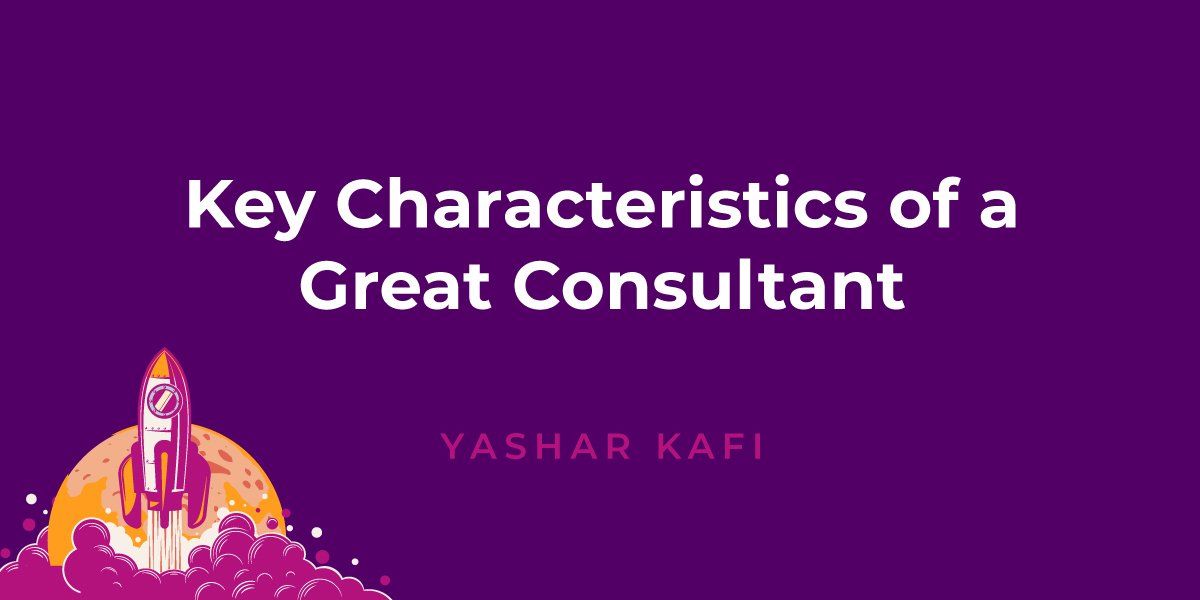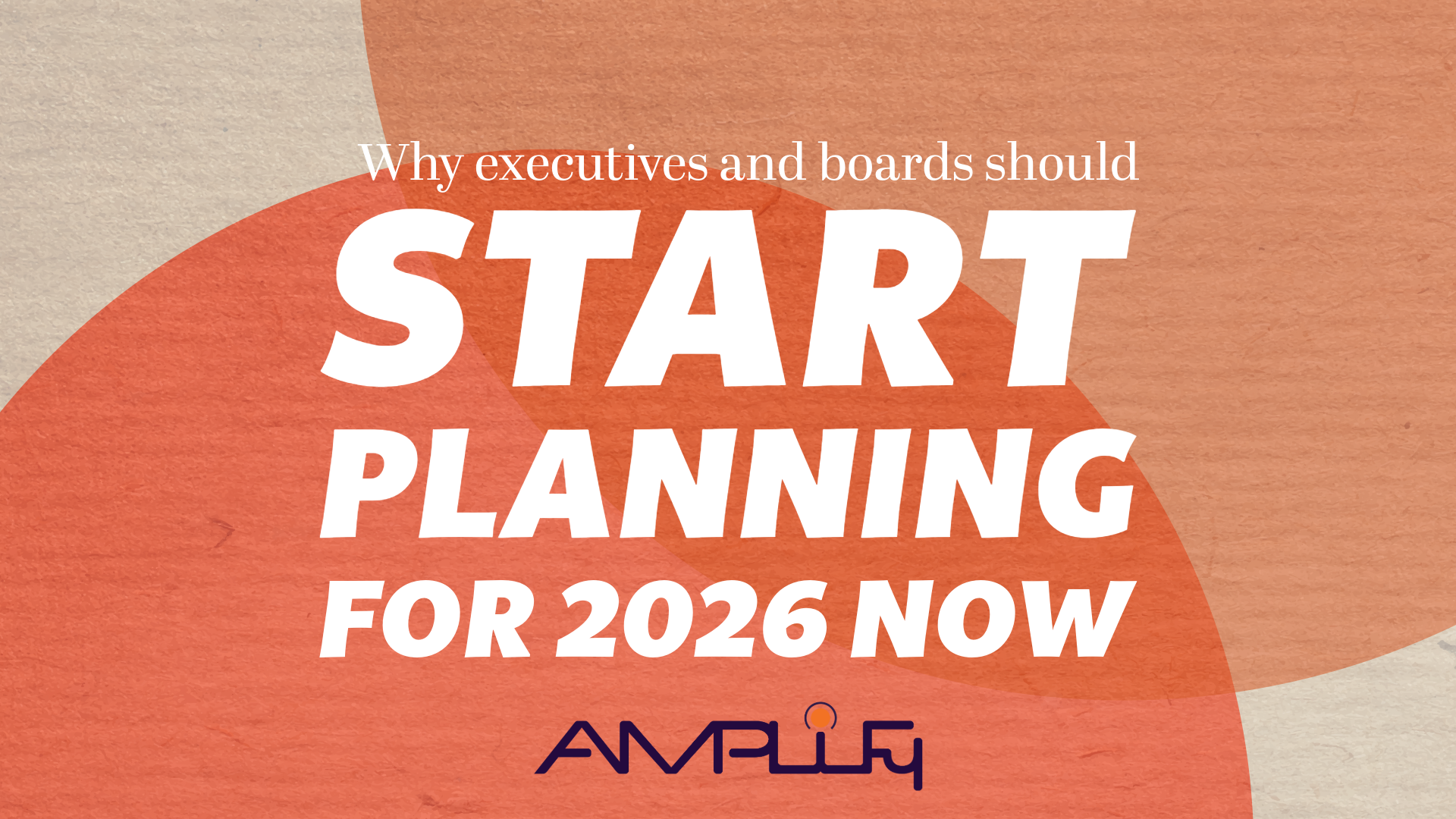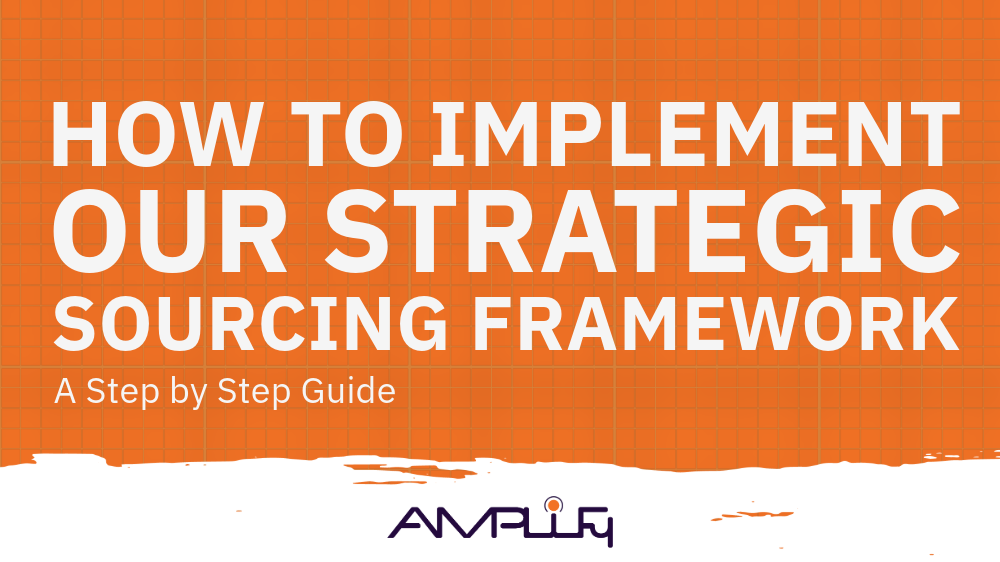Key Characteristics of a Great Consultant
A few years ago, I shared my insight into What Makes a Great Consultant. I’ve recently been thinking about the characteristics that create the best consultants in the game since several younger people have contacted me for advice on what they need to succeed in consultancy.
Before I get into the list, I’d like to say that some of the skills and behaviors I’m about to mention are learned through experience, while others are more innate in you as a person from birth—simply a case of nature rather than nurture. If you recognize the traits that I list in yourself, and if you could just place your face on the page in front of you, rather than the descriptions I provide then, consultancy is probably for you.
Let’s get to it.
What is the Role of a Consultant Today?
Today, amid a world of constant innovation and changes, consultants have to wear many hats and use their skills in various areas to provide their clients with leadership and support to achieve their goals.
Among these hats are a trio of roles I see as the foundation of today’s modern consultant: Your consultant should be an optimizer, a visionary, and a proactive leader. A triple threat, if you will.
When acting as the optimizer, a consultant will help their client reach their highest, most efficient—and profitable—potential by optimizing their everyday processes. Working as a visionary, the consultant has the advantage of an outsider perspective, so they see problems—and solutions—from a fresh, external point of view that may otherwise be hard for internal employees and CEOS to see. These experts have the insight to see where your company is, spot the issues that need to be solved, and envision—and help you reach—where you want to be.
Finally, acting as a proactive leader, the consultant takes their vision—gleaned from learning the company and its needs inside and out—and leads that company into accomplishing that vision. They do this through real, proactive solutions and encouragement, support, and motivation. Often, companies just need that one consultant to come in and provide a fresh expert perspective, backed by the skill set that can lead them to success. Again, this is no easy feat, and it requires business acumen and a wealth of soft skills.
Why are Soft Skills Crucial When Working With a Consultant?
Soft skills are what we consider non-technical skills that are vital to organizations, especially in modern-day work environments. These skills encompass the social and emotional arena that current machines can’t compute. Soft skills directly impact culture, employee mindsets, and behaviors of an organization. It’s crucial that consultants develop—and lead with—soft skills.
For instance, they can focus on developing more collaboration through interactive training sessions, brainstorming workshops, and taking the initiative to improve communication and critical thinking in creative, non-technical ways.
To further reveal the dire need for more soft skills in the corporate arena, we look to the numbers. According to a McKinsey & Company survey, HR professionals reported the candidates they were reviewing showed a significant lack of the soft skills needed to succeed in today’s workplace. The top three soft skills that were missing in their pool of recruits included:
- Problem-solving, critical thinking, innovation, and creativity (reported by 37% of HR respondents)
- The ability to deal with complex and ambiguous matters (32%)
- A lack of adequate communication (31%)
It’s the consultant’s job to get in there and work with organizations to bridge the gap and bring these skills to help companies foster them in their internal workforces. Specifically, employers need to provide soft skills training, and those that have done so, according to McKinsey, report positive impacts on their workforce, including higher productivity and improved results.
Key Characteristics of a Great Consultant – What are They?
As mentioned before, consultants wear many more hats and fill many roles to lead a company to its ultimate goals. Let’s dive into the main characteristics that set apart the GOATs from the sheep.
1. Flexible
The best consultants are adaptable; they can easily switch between new environments, people, and workplace cultures. This is excellent when starting new projects, as they’re ready to arrive and assimilate to get the job done as fast as possible. They excel in soft people skills and the technical expertise needed for the job at hand, so they can easily take on new positions and roles.
2. Disciplined
That adaptability and natural flexibility wouldn’t be much use if a consultant weren’t disciplined in their job. The best consultants work hard and work smart, which results in working fast. They’re efficient in what they do, and they find ways to get projects completed in as little time as possible as seamlessly as they can.
3. Confident
You’ve probably met a few consultants in your time. The younger, less seasoned ones tend to be overly confident. They’ll chew your ear off, telling you all about their successes, potentially their salary, and why they’re so good at what they do. Even though it may be irritating, it comes from a place of reality.
Good consultants are confident and have faith in their ability to get the job done; great consultants assume leadership qualities and leave their ego at the office door. The best of us are all about collaboration, and we strive to see the company and team around us succeed.
4. Persistent
Great consultants are persistent. They never give up—even if it means that they get annoying. They realize that friction is part of the job and that unforeseen circumstances and negative feedback come not to put you down but to motivate you to do better. It’s all a learning curve for the best consultants, and if you tell them what they’ve done wrong, they’ll quickly learn from it and bounce back stronger than before.
5. Studious
I said that “it’s all a learning curve” already. That doesn’t just come through adversity and failure in the workplace, though. Like anybody else who is great in this world, great consultants never stop learning; they always have to be on top of their game, or their competitors will do better than them. It’s the job of a consultant to know everything in the industry so they can bring it to their clients when they arrive to address a problem or complete a project.
6. Meticulous
Great consultants are always meticulous by nature—they like to analyze and scrutinize their work to ensure that it is the best it can be. They first look at the bigger picture, courtesy of the client, and then look for every intricate little detail to innovate solutions for problems. They bring fresh, third-party insight to the organizations they assist, which often boosts the client’s business.
7. Humble
While confidence is a must, so is the ability to exhibit humility as a consultant. This doesn’t mean being meek. Instead, it means adopting the attitude and coming into an organization with the mindset that you are not better than anyone else. This allows you to come in and better serve those you are trying to help. It will put them at ease, and they will be more open to receiving and acting on your expert insights.
After all, one of the worst things you can do is storm in with an arrogant attitude when working with stakeholders and employees. Remember, these folks have often been doing the job you are coming in to optimize for some time, and there is a respect level that needs to be maintained from day one if you are going to make any leeway long term.
8. Trustworthy
Finally, and perhaps most importantly, you need to be a consultant who instills trust in your clients. After all, if the client does not trust your character or expertise (both of which are vital for a successful relationship), you won’t make the impact you desire. Their lack of faith in your ability to lead them will hinder their openness and willingness to work with you.
In a world that is constantly shifting, your clients are looking for a consultant they have confidence in, trust to lead them, and help them navigate any storms that come their way. Trust opens doors and enables clients to let go of the reins and follow and use your solutions. A lack of trust will be met with doubtful resistance every step of the way.
If this list looks like I’ve written your biography, then consultancy could be the profession for you. It can be a tough gig at times, but if you have the skills and passion for being a great consultant, you’ll learn to handle any friction or adversity with ease.
* This blog was updated in 2022 to include new characteristics relevant to 2022.




